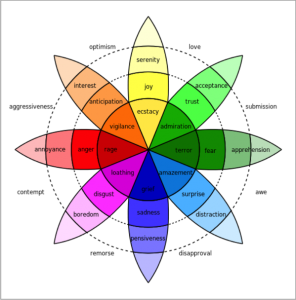
Coaches and college administrators who impose social media bans are failing their student-athletes.
Social media is a learning lab for anyone willing to dedicate time, attention and passion to it. Name the interest, and you can find and learn from people, content and events shared across today’s platforms.
So why do coaches and administrators — at institutions of higher learning no less — continue to demonize social media and the opportunities they provide?
ESPN recently reported Clemson and Florida State banned all social media for the 2015 college football season. For FSU, this continues an in-season stoppage started in 2011. “We don’t need any distractions. It’s no big deal,” one Clemson player told The Post and Courier about the ban.
In 2015, this confounds me as a sports fan, and as a communications and social media advisor to senior business executives.
Let me be crystal clear: When used appropriately, social media is not a distraction but rather a tool to help achieve your goals. For every reason a coach can dream up to ban social media, I can find multiple counter-arguments that make it worthwhile — even in-season.
Here are three gold standard rebuttals:
1. Teachable Moments
College students are in school to learn. There is no better time or opportunity to teach them about social media — and I mean everything about social media. Missteps happen, but as I’ve written here previously, social media mistakes are not forever. Done right, education can provide players (and coaches) with the ability to effectively use social media — no matter the season.
Create curriculum that highlights these teachable moments — hire someone if necessary! Recognize past mistakes but learn from them and become better. Talk as a team about parameters and safety nets that are already part of your culture of winning. Be there for one another on the field, in the classroom — and online.
“The best strategy is to educate. Help them understand just how big social media is, that the world can see every tweet,” writes Kevin DeShazo, founder of Fieldhouse Media and author of iAthlete: Impacting Student-Athletes of a Digital Generation. “Banning your players from tweeting is taking the lazy way out, and it’s doing your student-athletes a disservice.”
2. Life Skills
From the highest-profile student-athlete (like the one who may someday play professionally) to the Division III bench-warmer, social media provides life skills that translate beyond the playing field and classroom. Social media reinforces basic writing and grammar. It opens doors for creativity and expression in photography, video and design. It provides opportunities to deal with sometimes volatile negative feedback, to learn from adversity or to manage distractions during stressful times.
These are all things student-athletes encounter in the regular experiences of college life — and eventually life after college. Let social media add to the richness of those experiences.
“A player’s social media account, and, by extension, his smartphone, is the compass through which he navigates the world,” writes Zach Barnett, college football writer for FootballScoop.com. “Might as well teach him how to read it.”
3. Personal Branding
Perhaps social media’s most important asset is personal branding. Instead of teaching student-athletes to fear it, instill in them the skills to put social media to work for them — to set them up for success in life after graduation.
A coherent and upbeat Twitter or Instagram feed provides potential employers, business partners and friends with a better look into your world than anyone else can provide. This isn’t about creating a a facade but rather enhancing how you interact with people face-to-face. It’s an asset that — as sports business writer Kristi Dosh notes — 93 percent of employers check before making a hiring decision.
As student-athletes, you have 100 percent control of that message! And for those few elite athletes, social media may one day be the place they can make — and break — their own news. This is already happening! (Just ask Tom Brady about it).
Some sports leaders make sure to provide guidelines and education for their athletes — while not banning it. Guys like George O’Leary at the University of Central Florida get it. While he doesn’t use social media personally, O’Leary embraces the learning opportunity it presents his players. “That’s part of life. That’s part of teaching,” he said recently. “I do give out dos-and-don’ts on social media to them. What they should do and what they shouldn’t do. I would never ban that.”
Arkansas athletic director Jeff Long gets it, too, and even took to Twitter to counter the recent news of social media bans.
I don’t believe in this approach College is about Ed & preparing young people for life, social media is here to stay https://t.co/EXIk5rNey7
— Jeff Long (@jefflongUA) August 11, 2015
Demonizing social media does not benefit the student-athlete. Instead, tackling the issues associated with social media reinforces a learning environment and opens doors to new opportunities. Let’s coach our student-athletes to succeed at life, not just sports.
Thanks for being a fan.
(184)







